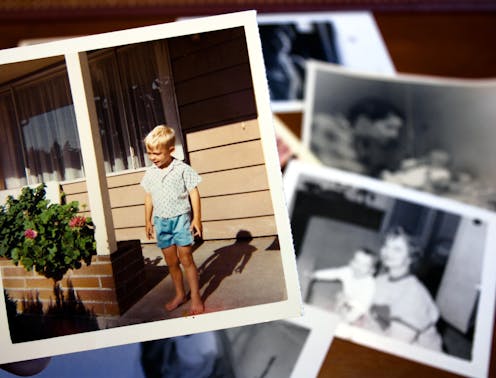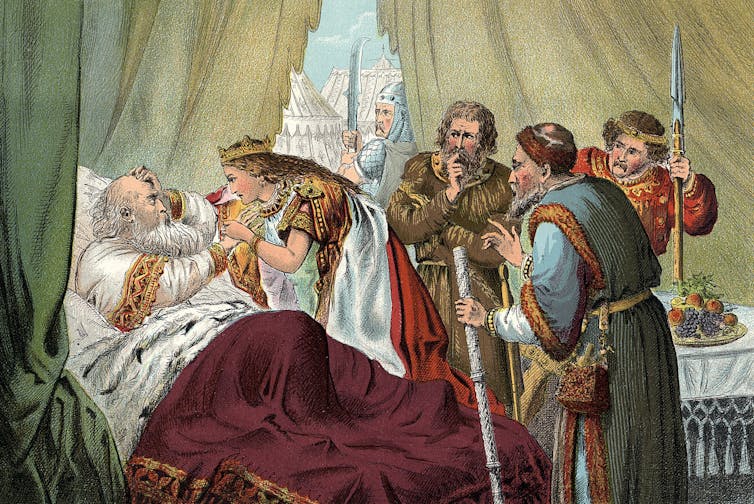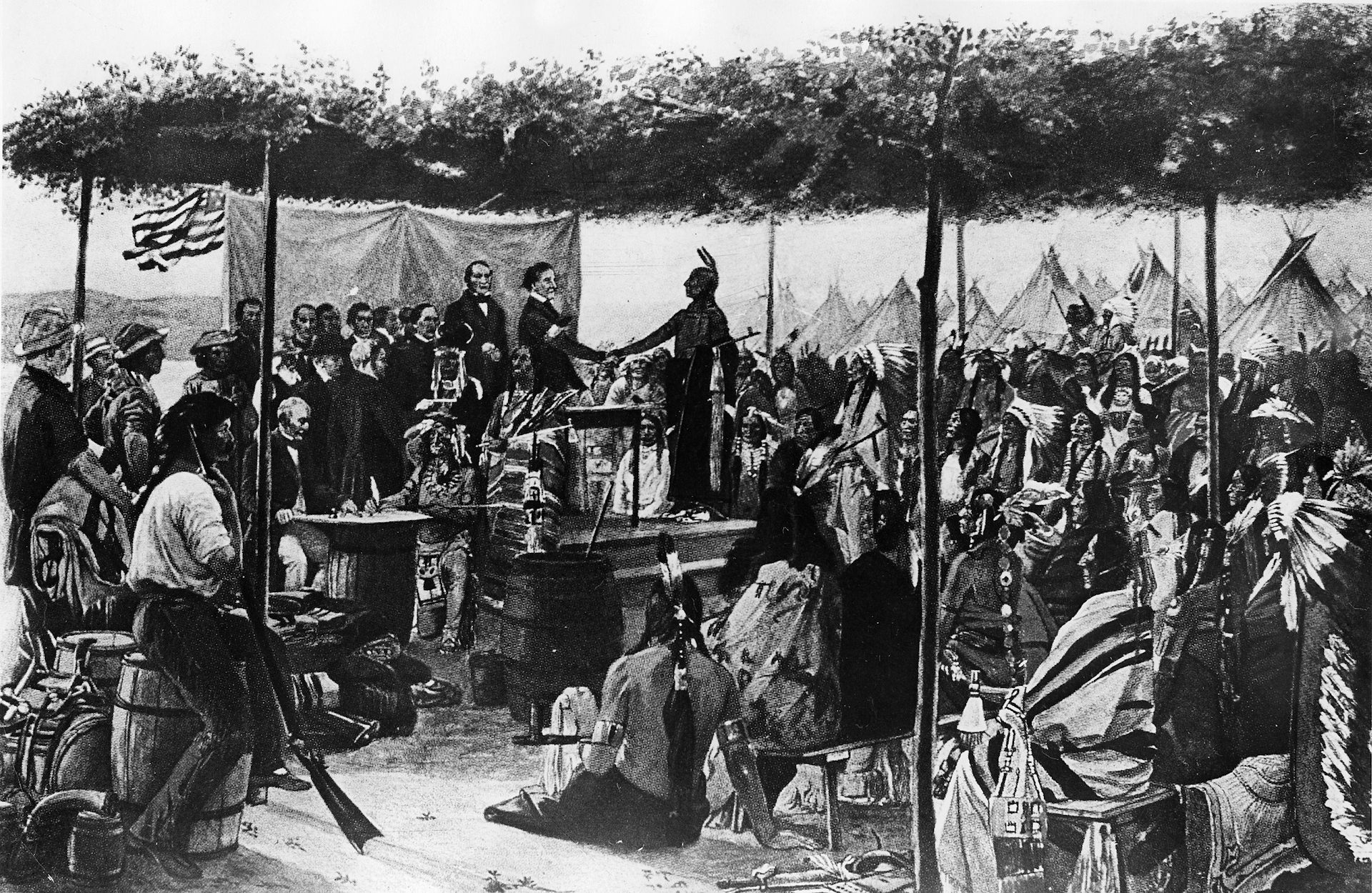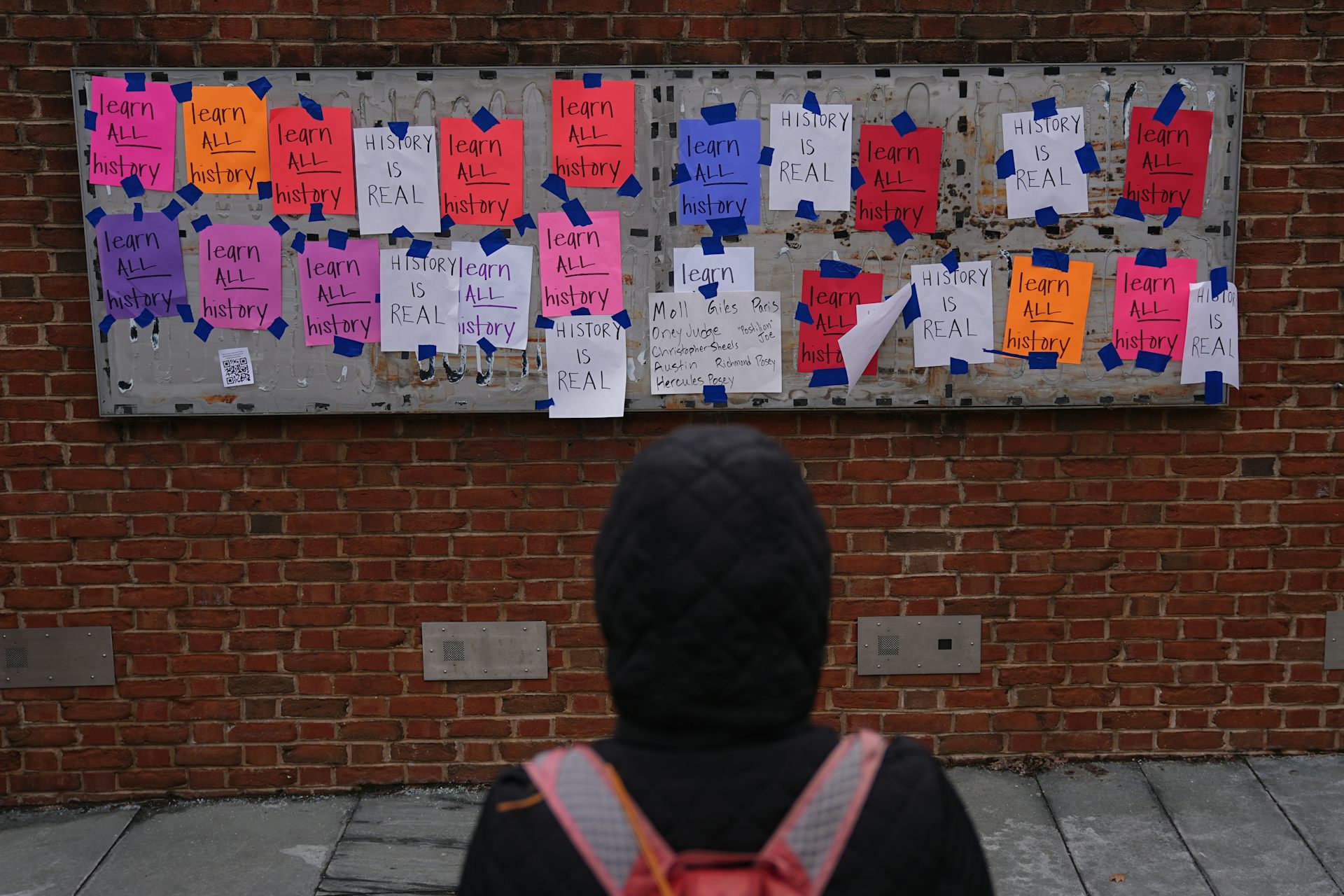As more Americans go ‘no contact’ with their parents, they live out a dilemma at the heart of Shakes
The advantages of being a part of a family are so obvious that losing that affiliation, intentionally or not, is tragic.

Is blood thicker than water? Should family always come first?
These clichés about the importance of family abound, despite the recognition that familial relations are oftentimes hard, if not downright dysfunctional.
But over the past few years, a discussion has emerged about a somewhat taboo move: cutting ties altogether with family members deemed “toxic.”
Called going “no contact,” this form of estrangement usually involves adult children cutting ties with their parents. It might happen after years of abuse or when a parent disapproves of a child who has come out as LGBTQ+. Or it might be spurred by political or religious differences. Even Vice President Kamala Harris has been mostly estranged from her father since her parents’ divorce.
The “no contact” movement has its proponents and detractors.
Those in favor say people should disentangle from unhealthy relationships without shame, and that family should be held to the same standards as friends and romantic partners.
Those against say the bar for what constitutes familial trauma has become too low, and that some kids who cut off all contact are being selfish.
At the heart of the debate over the ethics of estrangement is a cultural attachment to the idea of family. The field of family estrangement is still in its early stages, but discussions of the collapsed parent-child relationship – its sources, its ethics, its consequences – can be found in literature across history. As I’ve encountered more articles, forums and social media posts devoted to family estrangement, I can’t help but see connections to Shakespeare’s “King Lear,” which I teach to my students as a tragedy about dysfunctional families.
The tragedy features characters who are cast out by their families, and while the work is over 400 years old, it offers uncanny insight into the logic of modern family estrangement.
Early modern family
In Shakespeare’s time – the English early modern era, which spanned from the beginning of the 16th century to the start of the 18th century – Protestantism reinforced the idea that people had special obligations to their kin.
As the English Puritan preacher John Foxe wrote in “The Book of Martyrs,” “Among all the affections of nature, there is none that is so deeply graved in a father’s mind, as the love and tender affection towards his children.”
In Foxe’s teaching, children were blessings from God who required nurturing, spiritual guidance and material support from their parents. Children, in turn, were obliged to honor and obey their parents who cared for them.
While this sounds simple enough, the early modern family was no less prone to dysfunction than the modern family.
Just like today, parent-child relationships were dynamic and evolved across the life span of the parents. As historian Ilana Krausman Ben-Amos argues, the family bond was not sustained by adhering to God’s commands, but through giving and reciprocation that was asymmetrical.
Parents could invest a lot into their children and get very little in return, and vice versa. Due to shorter life expectancy, many parents did not live to see their children come of age, and if they did, children rarely earned enough to pay their parents back for the cost of raising them. Thus, children might reciprocate in less material forms, such as through offering affection.
When a parent died, the children might receive some form of inheritance, but this was largely determined by class status, gender and the order of birth.
Shakespeare’s characters go ‘no contact’
“King Lear” features two storylines. Each relates to the disintegration of the family.

The first plot involves Gloucester and his two sons, Edgar and Edmund. Edmund is a bastard, which means when Gloucester dies, his legitimate brother, Edgar, will inherit everything. To get his revenge, Edmund forges a letter in which Edgar reveals plans to murder Gloucester to expedite his inheritance. Once Gloucester sees the letter, he writes Edgar off as a villain. Feeling betrayed, Edgar assumes a new identity as a beggar and goes no-contact with his family.
In the second plot, King Lear attempts to divide his kingdom among his daughters. Because it is impossible to equally divvy up cities, towns and villages, he invents a contest: Each daughter will give a speech articulating their love for their father. He’ll award the best parts of the kingdom to the daughter who does the finest job stroking his ego.
Lear expects Cordelia, his favorite, to outshine her sisters. But she refuses to play along and instead calls him out for his vanity. Feeling disrespected, Lear disinherits Cordelia. With no money, she’s forced to marry the first man who will take her and moves to France.
In these family dramas, the parents are unfair, even vindictive, toward their children. But the conflict is still compelling and relatable to readers today because so many families are characterized by inequality.
The favorite child, the preferred parent and the inheritance dispute are as timeless to families as birthday parties and funerals.
Right and wrong get muddied
Deception inspires Gloucester’s disavowal and disinheritance of Edgar. And, yes, Edmund’s scheme to destroy Edgar and Gloucester’s relationship is diabolical. But at the same time, Gloucester’s decision to throw away his decades-long relationship with his son over a letter – phony or not – seems rash.
Was Edgar right to flee from his father? Or could something have been done to save the relationship?
Cordelia is correct that Lear is vain for expecting his daughters to compete for their inheritance. At the same time, complimenting her father seems like a small price to pay for an entire kingdom.
Is Cordelia acting like a spoiled brat by refusing to honor and obey her father? Or is she doing him a favor by calling out his unbecoming behavior?
Shakespeare doesn’t offer us any clear answers to these questions; he just asks readers to wade in the complexity of them and experience the unique grief that comes from watching a family fall apart over something that maybe could have been avoided.
No envy for the estranged
No one gets a happy ending in “King Lear” – not the children who reject their parents, and most certainly not the parents, who need their children to protect them and care for them in old age.
Edmund’s grief over his bastard status begets the grief he brings to Gloucester and Edgar. For failing to see the truth of Edgar’s innocence, Gloucester is physically blinded by one of Edmund’s unwitting co-conspirators, a punishment he accepts. When Edgar reunites with Gloucester, his eyes fill with tears as he witnesses his father’s physical suffering. Before Gloucester dies, Edgar asks his father for a blessing.
Even though Lear cut off contact with Cordelia, she still returns to England once she learns her sisters have thrown Lear out onto the streets with nothing but the clothes on his back. The sisters come off as villains, but one could also see their abandoning Lear as karmic retribution. When Lear reunites with Cordelia, he begs for her forgiveness, suggesting he recognizes his failures, and she begs for his, recognizing her enduring love for him despite his faults.

Then and now, family estrangement often leads to loneliness, along with social stigma.
Parents can be ashamed to say their children no longer speak to them. People who are estranged from their parents speak of the impulse to share milestones with family, but fear eroding the boundaries they’ve worked so hard to maintain.
Just like in “King Lear,” not having a family also means being economically vulnerable: It remains difficult to get a loan or lease as a young adult without a co-signer.
The advantages of belonging to a family are so obvious that losing that affiliation, intentionally or not, is tragic. “King Lear” ends with almost all the characters dying, but because this is a play – a fiction, a fantasy – they get to ask for and receive forgiveness before the curtain closes.
Real life doesn’t usually work like that, nor should it be expected to. If “King Lear” and Kamala Harris’ estrangement from her father make anything clear, it is that no amount of money, power or threat of bad publicity can fully protect a family from dysfunction and disintegration.
Jeanette Tran does not work for, consult, own shares in or receive funding from any company or organization that would benefit from this article, and has disclosed no relevant affiliations beyond their academic appointment.
Read These Next
Green or not, US energy future depends on Native nations
Native American lands contain 30% of the nation’s coal, 50% of its uranium and 20% of its natural…
Martha Washington’s enslaved maid Ona Judge made a daring escape to freedom – but the National Park
Ona Judge was one of 9 people George Washington owned when he lived in the President’s House in Philadelphia.
‘Proportional representation’ could reduce polarization in Congress and help more people feel like t
The electoral system used by many global democracies eliminates gerrymandering and has been shown to…






